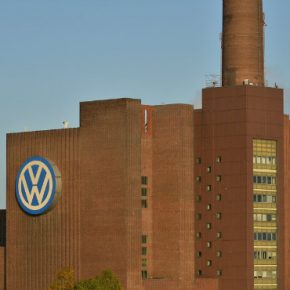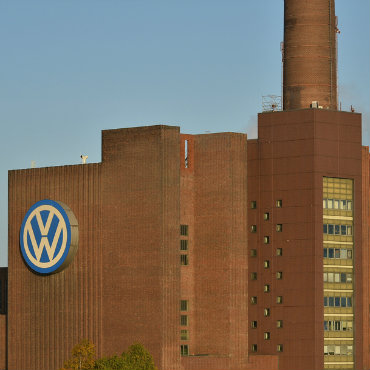Tydzień w gospodarce
Category: Raporty

Wolfsburg, Germany (Glyn Lowe PhotoWorks, CC BY 2.0)
In several countries in the Balkans, the media and political circles have speculated about the location to be chosen for the potentially largest foreign investment in a country in Eastern Europe or the Balkans.
According to the announcements of the German giant, this factory, which should be opened by the end of 2022 or beginning of 2023, could employ up to 5,000 workers and produce 300,000 cars per year, which could add even more than EUR4bn to the output of the export. The models in question may include Volkswagen, Škoda, and SEAT, all of which are owned by the German automotive concern.
For the time being, several possible locations where they might choose to build the new Volkswagen factory include Bulgaria, Serbia, Romania, and Turkey, though two countries are primarily in the public eye — Serbia and Bulgaria. The analysts of both countries highlight the advantages of investing in their own country, however, Volkswagen hasn’t yet decided where the factory will be built. Despite numerous press inquiries, representatives have only given a simple reply that “the decision hasn’t been made yet” and that they’ll “inform the public as soon as it becomes official.”
Apart from that, Volkswagen has to solve certain issues that are slowing down decision making within the company itself. Namely, according to the newspaper “Bild am Sonntag,” Volkswagen’s Works Council announced that they would vote against the plan to set up the new factory in Southeast Europe. According to the Works Council, their representatives believe that the production capacities available in Germany are not fully exploited and that they could be adapted to produce new car models. The Works Council has a rather influential role in German industrial production — out of twenty members of the Supervisory Board of the company, half is appointed by the Works Council, including the Deputy Chairman of the Board. Every strategic decision of the companyhas to be approved by the Supervisory Board.
Volkswagen’s potential investment in Southeast Europe is a part of tremendous changes and saving plans of the company. Even though this is a company that has been among the largest auto makers in the world year after year, alongside Renault, Nissan, Mitsubishi Alliance and Toyota, its management representatives firmly believe that the substantial changes are the right way to be ready for the changes in the automotive industry that will follow after 2020.
Their plans also include cutting between 5 and 7 thousand jobs in the manufacturing plant in Wolfsburg. The reason lies behind Volkswagen’s plan to increase the production of electric vehicles, and, according to the management representatives, electric vehicle (EV) production requires up to 30 per cent less time and work. Herbert Diess, the Chairman of the Management Board of Volkswagen, said that meant they “will, thus, cut jobs.”
Marcus Berret, the head of global automotive team of the consulting company Roland Berger, stated that “this industry sector is in a difficult situation; billions have to be invested in new technologies, such as electric vehicles, which won’t bring more money in the beginning.” Considerable investments in research (electric vehicle batteries in particular), as well as logistic adjustments for the requirements imposed by the new type of vehicles, is a serious challenge.
All of this brings some major changes. Volkswagen decided to transform three plants in Germany to make them suitable for EV production. These include plants in Zwickau, Emden, and Hannover. The production of the Passat model would be relocated to the Czech plant in Kvasiny, while those currently produced there would be made in the new factory in Southeast Europe.
Naturally, the reactions in the Balkan countries were multiple, reaching to the highest political and economic levels, and, generally, they reflected the exaggerated and, so far, ungrounded optimism, because, as previously noted, the location of the future investment hasn’t been chosen yet.
Media reports in Bulgaria suggest that this country is Volkswagen’s favorite. According to “Deutsche Welle,”Mitko Vassilev, the CEO at the German-Bulgarian Chamber of Industry and Commerce, was not that explicit, but he said: “I would like to see that happen, but, of course, Bulgaria is in strong competition with its neighboring counties.”According to him, Bulgaria offered two locations — the Kremikovtzi district near Sofia and the industrial district Rakovskinear Plovdiv.
According to Mr. Vassilev, some of the factors that give Bulgaria advantage over other competitors include the following: it is an EU member state, its economy is thriving, and its economic cooperation with Germany has rapidly become rather successful in the last couple of years. Mr. Vassilev also believes that Bulgaria will offer favorable conditions to attract Volkswagen. However, he also emphasized that, in his opinion, it would be wrong to offer conditions that don’t comply with the European Union directive just to attract one, though rather large, company.
At first, the media in Serbia also reported that the matter was settled in favor of Serbia, but after the initial wave of optimism, more realistic analyses followed. The highest state officials, including the President Aleksandar Vučić, Prime Minister Ana Brnabić, and the president of the Chamber of Commerce Marko Čadež, all expressed their hope that Volkswagen might choose to invest in Serbia.
What makes it difficult to predict the winner of this battle is the complexity of the parameters that Volkswagen’s Management Board is taking into consideration. The fact that Bulgaria is the member-state of the EU is not necessarily of pivotal importance, considering its rule of law issues and corruption perception index. Since Serbia signed the Stabilization and Association Agreement,this gives it the same status as if it were the EU member-state regarding automobile trade — both the imported parts and vehicles exported as finished products are tax-free. On the other hand, the low labor cost is not a decisive advantage for Serbia, either, given that the difference compared to Bulgaria is small, and the labor cost in automotive industry accounts for about 15 per cent. Serbia cannot rely on the Free Trade Agreement with Russia, since it doesn’t allow for free import of those products in which components produced in Serbia account for a small portion, which is the case in automotive industry.
What could potentially be seen as an advantage for Serbia is the fact that, if the Italian automobile manufacturer Fiat leaves Serbia, there will be a big plant left in Kragujevac, together with highly-qualified labor force with considerable experience in modern automotive production.Volkswagen, too, could use this resource in starting its own production. On the other hand, Bulgaria is more politically stable, especially because there are no open questions like the issue of Kosovo,on which Serbia is negotiating under the patronage of the European Union.
Meantime, according to local media, during the board of directors meeting on May 14th, Volkswagen has decided to start talks with a few cities in Bulgaria and Turkey. Thus it seems that the company no longer considers neighboring Serbia and Romania in the race for a future destination of its investment. The final decision will be announced in October.
Milica Milojević is an economist and analyst, a part-time economic journalist with corporate, banking, and consulting experience. She has written papers on monetary and political economics, and economic history of Serbia and the Balkans.


